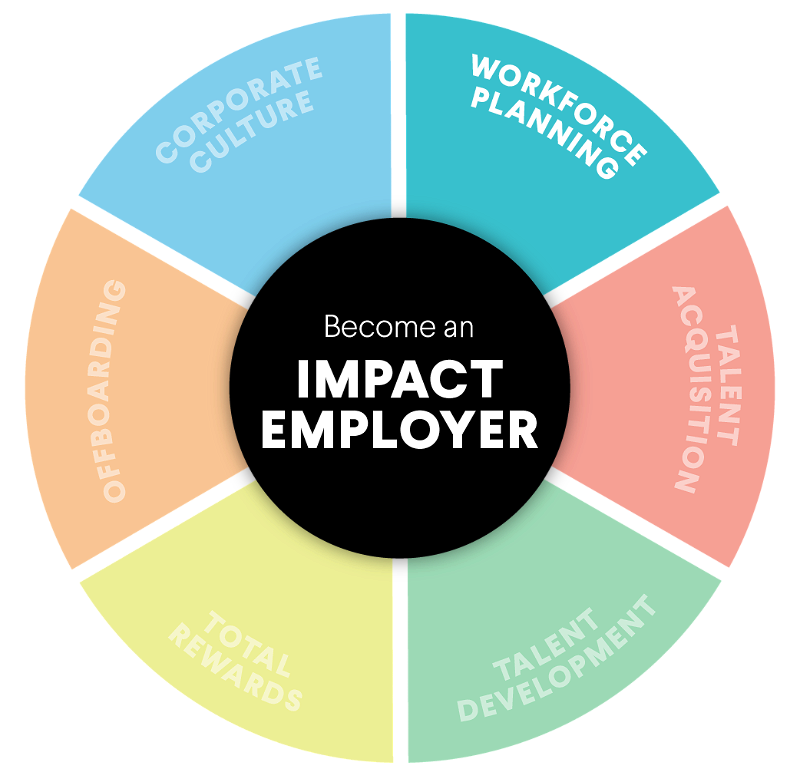The COVID-19 pandemic and related crises forced many companies to abandon their workforce plans and pivot to forecasting their near-term talent needs. Impact Employers emphasize rapid agility around talent planning. As automation and other forces accelerate the evolution of work, businesses must be ready to redeploy people within the company on short notice.
In addition, companies must consider the risks of having people physically on the job and be ready to digitize operations at a moment’s notice. This has implications not only for the operations of a business but the required skills of the people who power it. As companies begin to navigate recovery, they must begin to study the impact of digital transformation and plan how to prepare their workforces for those changes.






